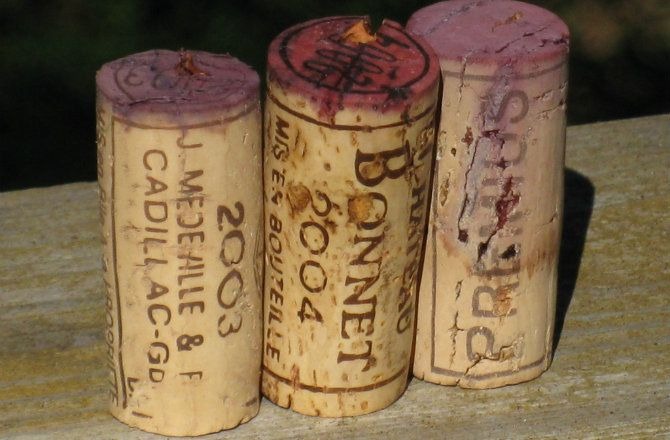Do Bordeaux Blends Age?
With my recent tasting of 2008 bordeaux fresh in my mind, it is the perfect time to revisit a tasting from early this year of what can only be described as minor bordeaux of the 1980s. Truth be told, I don't recall the exact pricing for many of these wines, though they were mostly under $10 a bottle. Accounting for inflation, that means about $20 in 2011 dollars.
To put things in perspective, both Meyney and Poujeaux are still minor bordeaux and tend to be good values, but are priced in the $30 to $40 range these days. That's just one thing that has changed in Bordeaux over the years. They've become more expensive, but they've also seen many "improvements" over the years as well. I say "improvements" primarily because some of the progress we've seen has been primarily in making the wines bigger and bolder, to satisfy the bigger-is-better camp of wine drinkers and reviewers.
It's actually hard to find wines that are similar to these Poujeaux and Meyney vintages, which makes this tasting all the more interesting. Could value bordeaux stand ageing for 20 to 30 years? Were they even designed for this sort of time in the cellar anyway? One thing is for sure, they no longer are. One of the main differences between what I'll call modern bordeaux and their predecessors is the accessibility of the wine while young.
Back in the day, bordeaux tended to be a bit unfriendly on release. They were wines that demanded some time in the cellar. Today that is less of the case. Though they continue to reward cellaring, minor bordeaux in particular are built for early accessibility. They are fruitier, less tannic, and with softer acidity. This is a gross generalization and in an odd twist, might actually have greater validity as such. There are still plenty of bordeaux that demand cellaring, but almost all plateau sooner than they once had.
These wines from the 1980s reflect a different mind set. They lean towards accessibility but also toward ripeness, fruitiness, and the general ideal profile of bordeaux. They are wines that were leaner and more structured than today's versions, which might not be ideal for a modern marketplace, but do help forgotten bottles stand the test of time.
I've owned all of these wines since release and while they weren't quite forgotten, they certainly were forgotten about for some time. I've been working through them over the years and while many have their best days behind them, they continue, for the most part, to drink well and have certainly rewarded me handsomely for my modest investment!
These all turned out to be good wines, some very good and punching well above their weight-class. In fact, the 1988 Meyney, which was corked tonight, continues to improve and is a potential knockout among these wines. The 1982 bordeaux on the other hand is a sentimental favorite, the first solid case of bordeaux I purchased for my cellar and one of my epiphany wines. It was the first wine that I drank in its youth while able to see its future potential. It was an exciting moment in my wine life and one I remember fondly.
Of course, 1982 was also a fabulous vintage. Even though this particular 1982 has faded quite a bit since its peak, about five to eight years ago, it still delivers a delicious bordeaux drinking experience. That unfortunately has become hard to come by today, at least at this price point. Minor bordeaux today is a wine for now, quite fittingly a wine for the moment.
We no longer want to wait for what may come, even though there is nothing better, and instead we prefer what we can certainly have. It's a pity. With so few wines at these price points promising this type of development in the bottle, we risk loosing a part of our culture. That part that understands that what happens in the bottle cannot be otherwise replicated and that often the best results come from ugly ducklings.
So below you'll find my tasting notes on some truly lovely wines. I'm not sure what bordeaux I should be cellaring today to get these types of results, but I remain open-minded. What are your suggestions?
— Gregory Del Piaz, Snooth
(Photo Modified: Flickr/DebHarkness)
